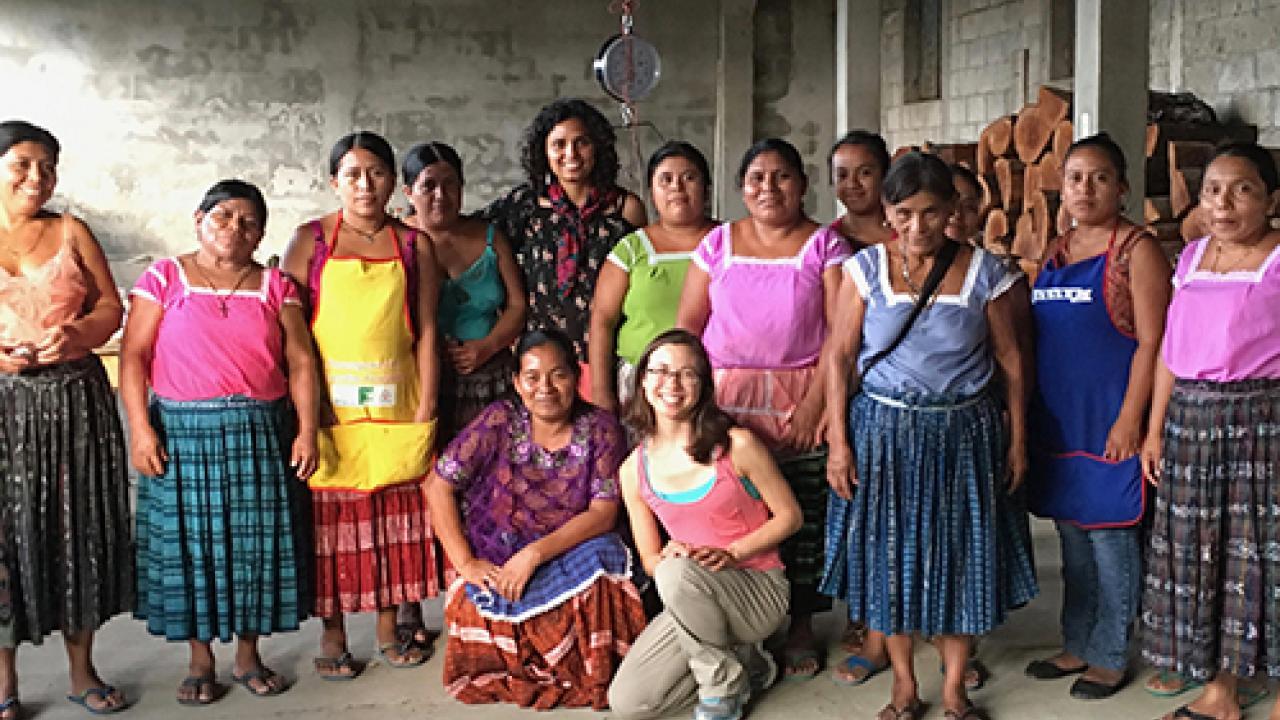
The Many Flavors Cacao
Envisioning a Future for Cacao Amidst a Changing Climate
By Josh Staab, UC Davis Strategic Communications
"There's something about that first satisfying snap into a bite of chocolate that can transport a person somewhere like no other candy can. From the tropical regions that grow cacao to the companies that produce the confections we see in the store, that chocolate had to make a journey of its own, as well. Farmers and scientists from around the world will soon be able to connect at UC Davis to ensure growing a fragile bean into one of the world’s most prolific foods endures for generations to come.
UC Davis students and experts are working to better understand cacao, a vital ingredient necessary not only to chocolate production, but to many people across the world. A part of the pursuit is sharing knowledge to better understand the complex challenges and issues in the wide world of chocolate production.
As diverse as cacao is, so too, is the research surrounding it at UC Davis.
“We’re so used to going to our local grocery store, buying a bar of chocolate that is produced in North America or Europe and feeling that distance from where the cacao is actually growing, which tends to be in tropical regions of the world, typically north and south of the equator,” said geography graduate student Madeline Weeks. Weeks studies the social, economic and environmental dimensions of fine flavors of cacao and chocolate. Before starting her graduate studies, she spent two months living in Belize and Guatemala, interviewing smallholder cacao farmers, independent growers who oversee small plots of land and sell to Maya Mountain Cacao and Cacao Verapaz.
Cacao is a heritage food of Guatemala, so Weeks wanted to focus the project on specialty markets to highlight the unique quality of the cacao the smallholder producers grew and export it to the international market. Weeks partnered with the Guatemalan NGO, Fundación ProPetén to support production and commercialization of cacao in Southern Petén.
The project had two goals: On the one hand it was empowering these communities to export their own cacao. “But the other very important aspect of the project was actually getting the women involved,” Weeks said."
Strengthening community production
Through a Research and Innovation Fellowship for Agriculture (RIFA) grant from UC Davis, Weeks worked with a group of women called Red de Mujeres, who, created a marketable product from the cacao they were already growing in their communities.
“[The Red de Mujeres] said part of what empowered them was knowing they could make their own chocolate,” Weeks said. “It’s embodying this concept of something that is from their heritage.”
Moreover, going beyond chocolate, together Weeks worked with the women's group to develop new recipes that slightly modified the traditional ones passed down from previous generations.
Weeks returned to Guatemala in 2017 through a Blum Center for a Developing Economies Grant, which enabled her to invite Northern California craft chocolate company, Cru Chocolate, to lead workshops centered around cacao-based recipes. With her first experience still fresh in her mind, she was thinking more clearly about cross-cultural conversations and learning more specifically about the interconnected concepts of health, food insecurity and supply chain."
Read the full story at UC Davis News.